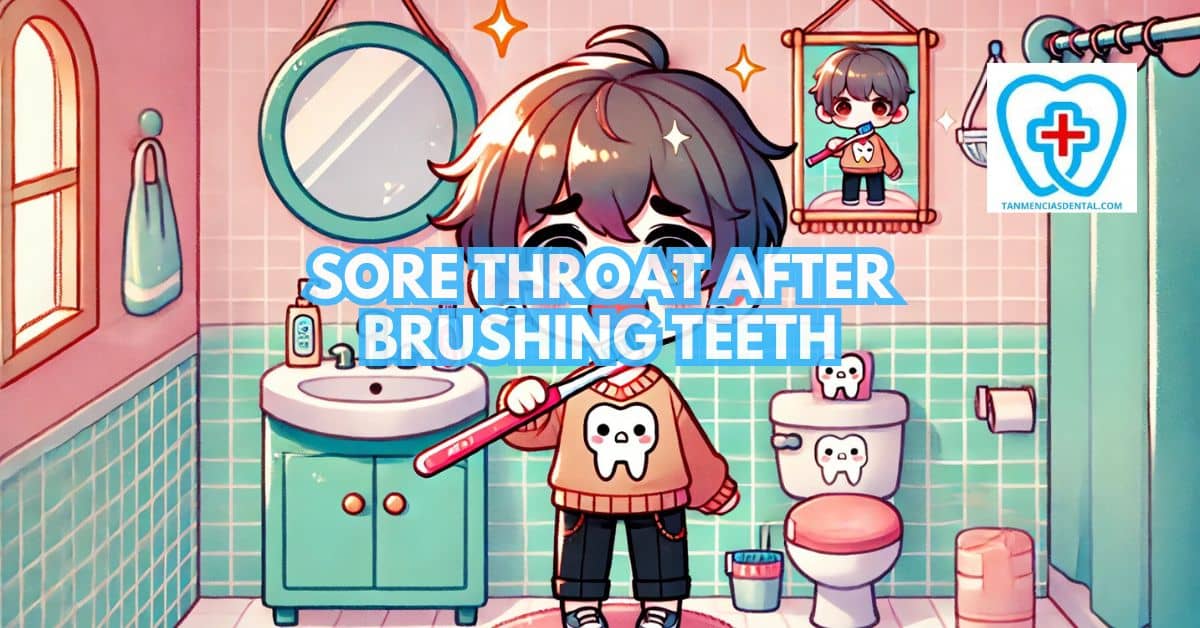Sore Teeth After Brushing

The annoyance of sore teeth after brushing can be a real discomfort for many individuals. This issue, while often temporary, can be a symptom of various underlying conditions that need attention. It’s essential to understand the possible causes and address them appropriately to maintain good oral health and alleviate the soreness.
One of the primary reasons for sore teeth after brushing is the sensitivity of the teeth. This sensitivity can be due to several factors, including receding gums, tooth decay, or worn-out enamel. When the protective layers of the teeth are compromised, the dentin, which is the layer beneath the enamel, can become exposed. The dentin contains tiny tubes that lead to the pulp of the tooth, and when these tubes are exposed, they can cause sensitivity and pain, especially in response to hot or cold temperatures, or even the mechanical action of brushing.
Another possible cause of sore teeth after brushing is the use of a hard-bristled toothbrush or applying too much pressure while brushing. Over time, this can lead to the erosion of the enamel and recession of the gums, exposing the roots of the teeth and making them more susceptible to sensitivity and pain. It’s crucial to use a soft-bristled toothbrush and gentle strokes to clean the teeth without causing wear and tear on the gums and the enamel.
Furthermore, the type of toothpaste used can also contribute to sore teeth. Some toothpastes, especially those designed for whitening, contain abrasive particles that can strip away the enamel and cause sensitivity. Similarly, toothpastes with high levels of sodium lauryl sulfate (SLS) can cause irritation to the gums and the mucous membranes in the mouth, leading to discomfort and soreness.
In some cases, sore teeth after brushing can be a sign of a more serious underlying condition, such as gum disease or periodontitis. These conditions can cause inflammation and infection of the gums and the bone that supports the teeth, leading to pain and sensitivity. If left untreated, these conditions can progress and lead to more severe consequences, including the loss of teeth.
To address the issue of sore teeth after brushing, it’s essential to adopt good oral hygiene practices and make some adjustments to your daily routine. First, switch to a soft-bristled toothbrush and gentle toothpaste that is designed for sensitivity. Avoid using too much force while brushing, and focus on cleaning all surfaces of the teeth gently but thoroughly. Additionally, consider using a desensitizing toothpaste or a mouthwash that contains ingredients like potassium nitrate, which can help block the dentinal tubules and reduce sensitivity.
It’s also crucial to visit a dentist regularly for check-ups and cleanings. A professional cleaning can help remove plaque and tartar that can contribute to sensitivity and gum disease, and a dentist can provide personalized advice and treatment for any underlying conditions that may be causing the soreness.
In terms of preventive measures, avoiding acidic foods and drinks can help reduce the risk of enamel erosion and sensitivity. Foods and drinks with high sugar content can also contribute to tooth decay and sensitivity, so maintaining a balanced diet and practicing good oral hygiene is key.
For individuals experiencing sore teeth after brushing, there are several home remedies that can provide temporary relief. Applying a cold compress to the outside of the cheek near the sore tooth can help numb the area and reduce pain. Desensitizing toothpaste and varnishes can also be applied directly to the sensitive teeth to block the dentinal tubules and reduce sensitivity.
In conclusion, sore teeth after brushing can be caused by a variety of factors, including sensitivity, gum recession, and the use of abrasive toothpastes. By adopting good oral hygiene practices, making adjustments to daily routines, and seeking professional dental advice, individuals can alleviate the discomfort and maintain good oral health.
What are the common causes of sore teeth after brushing?
+The common causes of sore teeth after brushing include tooth sensitivity, gum recession, and the use of abrasive toothpastes. Other factors like hard-bristled toothbrushes, excessive brushing force, and underlying conditions such as gum disease can also contribute to the issue.
How can I prevent sore teeth after brushing?
+To prevent sore teeth after brushing, use a soft-bristled toothbrush, gentle toothpaste, and avoid excessive force while brushing. Regular dental check-ups, a balanced diet, and avoiding acidic and sugary foods can also help reduce the risk of sensitivity and soreness.
What home remedies can help alleviate sore teeth after brushing?
+Applying a cold compress to the outside of the cheek near the sore tooth, using desensitizing toothpaste, and varnishes can provide temporary relief. Additionally, avoiding irritants like acidic foods and drinks can help reduce sensitivity.
Ultimately, maintaining good oral health and addressing any underlying conditions promptly can help prevent sore teeth after brushing and ensure a healthy, comfortable smile. By understanding the causes, adopting preventive measures, and seeking professional advice when needed, individuals can enjoy better oral health and reduce the discomfort associated with sore teeth.